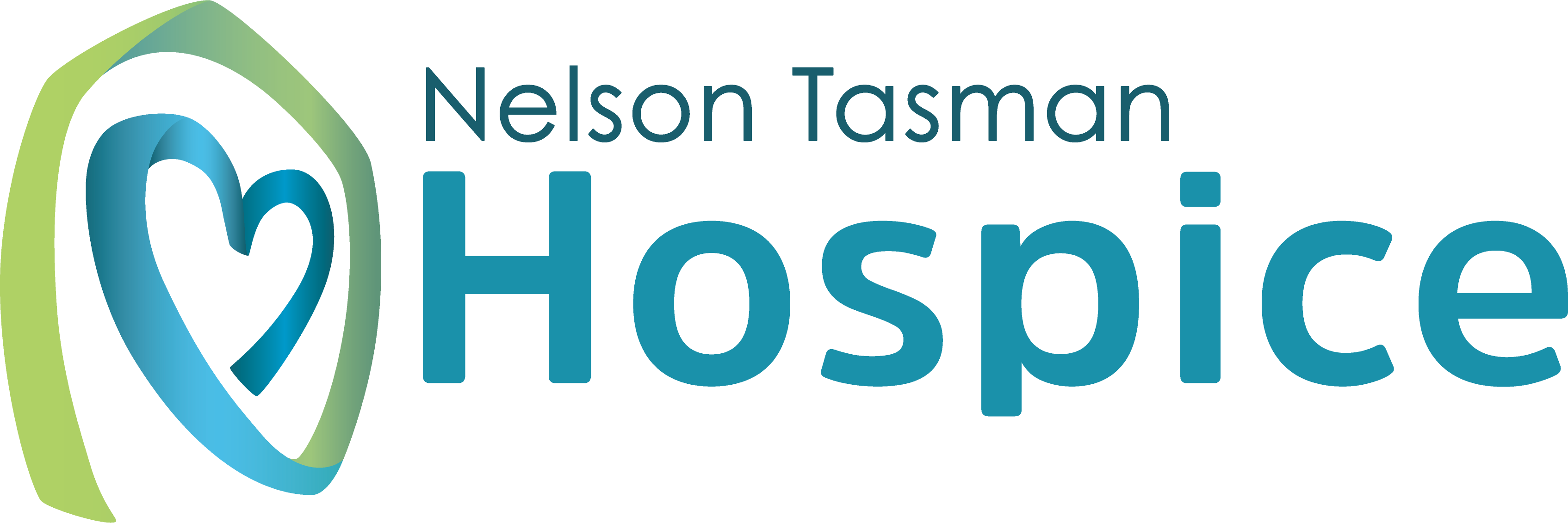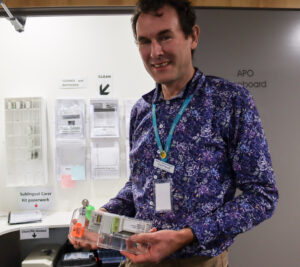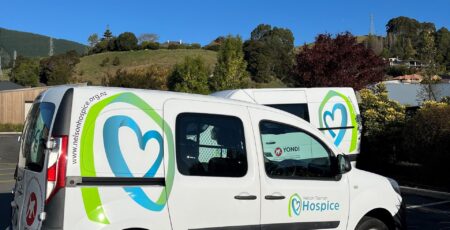We extend our heartfelt thanks to The Lion Foundation for their generous grant towards the…
A colleague innovation impacting hospices nationwide
He iti te mokoroa, nāna i kati te kahikatea – The mokoroa may be small, but it cuts through the Kahikatea
Small innovations can make a big difference in saving money for organisations like Nelson Tasman Hospice, where innovation isn’t always groundbreaking but involves collective efforts to enhance sustainability and service quality. These innovations not only demonstrate the organisation’s commitment to maximising the impact of the money fundraised, but also underscore its dedication to providing high-quality care and support to patients and their families.
Now, let us introduce Geoff Nicoll, the Facilities Coordinator at Nelson Tasman Hospice. Geoff is a resourceful individual with a sharp eye for problem-solving, a 3D printer, and the self-taught know how to put it to good use. With this skill set, he left no stone unturned when faced with broken syringe driver lockboxes.
In settings like a Hospice or hospital, a syringe driver is essential for administering controlled medicines like morphine. The syringe driver’s “lockbox” is a protective plastic container designed to keep it secure. It’s easy to see why it’s so important to safeguard it, not just for the cost but, most importantly, for safety reasons. Geoff explains “Many things can happen; they may get dropped or mishandled and the small tabs that hold the box together get broken off.”
The tab that holds these boxes together just isn’t as robust as it needs to be. It’s estimated that these lockboxes can cost around $150 each to replace, and Nelson Tasman Hospice has around 22 lockboxes. Not only that, but the lockboxes protect the syringe driver which would cost around $3,000 to replace. Geoff talks about the reasoning behind the solution “This particular idea is about saving money. How I see it, it might cost Hospice to raise money, but to potentially save over $3,000 in lockboxes, it could cost very little.”
His first port of call was to contact a local stainless steel manufacturer, to see if they could help develop a solution. It sat with them for about 6 months, until they realised it was a bit out of their playing field. Then, Geoff’s son gave him a 3D printer for his birthday. Geoff explains “I thought… What the heck am I going to do with this 3D printer? I had no idea how to use it. I taught myself to print out a few things at home, then I realised ‘Maybe you can make something on the 3D printer and save a bunch of money’. Before long, I had the mark one model ready to test.”
Needless to say, mark one was an “epic fail”. Whatever the solution, it had to accommodate various syringe sizes. After a few more failed attempts, and an estimated 20-30 hours of CAD drawing, Geoff had chopped, changed and chamfered his way to the perfect solution. The resulting PET plastic tab fits snug in the lockbox, secured with a small stainless steel screw. Being made of PET plastic means they are a much stronger fabric than the boxes themselves. When the box does break beyond repair, the attachment can be removed easily and screwed on to another lockbox.
I orea te tuatara ka patu ki waho – A problem is solved by continuing to find solutions
But the story of simple yet impressive solution doesn’t stop there. Geoff pondered, “If we’re facing this issue, it’s probably affecting other hospitals and hospices too.” Consequently, he shared news of this design with all of the other hospices in New Zealand, resulting in seven responses with an interest in learning more about the repair.
Understanding the time-consuming nature of 3D printing, Geoff opted for efficiency by sharing 3D printing files and a comprehensive guide with these organisations. His selfless dedication underscores the transformative potential of simple solutions. While Geoff seeks no personal recognition, a subtle ‘Hospice’ engraving on each replica acknowledges the design’s origin.
In the spirit of the whakatauki, “He iti te mokoroa, nāna i kati te kahikatea” – “The mokoroa may be small, but it cuts through the Kahikatea,” this story underscores the impact of small innovations. Geoff’s resourcefulness and dedication exemplify the power of finding solutions when faced with challenges. The ingenious solution to the broken lockboxes not only saves costs but also fosters a sense of collaboration, as it is shared with hospices nationwide.





Brilliant work, great story 🙂